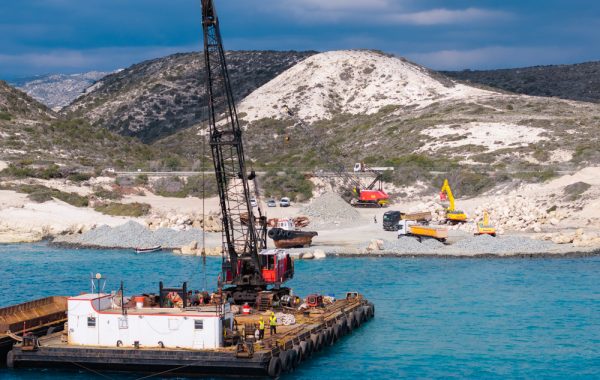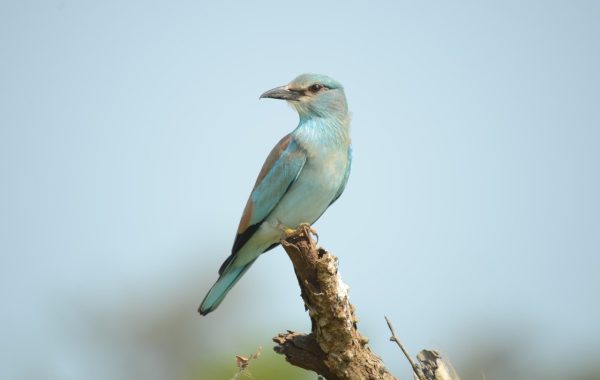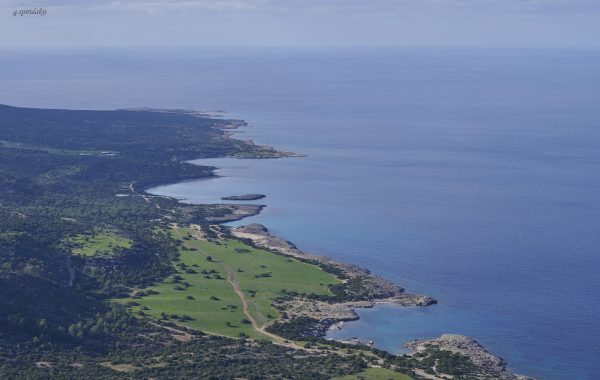A striking reduction in bird trapping was achieved in Cyprus in autumn 2017, thanks to effective enforcement, combined with newly deterrent sentencing and operations targeting trapping areas.
- More and continued action is called for to ensure this positive step is turned into a permanent end to large-scale trapping.
- Monitoring data for autumn 2017 showed a 79% decrease in trapping with illegal mist nets compared to 2002 and a sharp drop compared to autumn 2016. The enforcement efforts of the SBA Police, the Game and Fauna Service and the Cyprus Police Anti-Poaching Unit are fully acknowledged.
- Despite the fall in mist netting in the main autumn killing season, it is still estimated that up to 610,000 birds could have been killed across Cyprus in autumn 2017 and recent problematic relaxations of the Cyprus hunting legislation relating to limestick use and the consumption of game in restaurants remain.
- The SBA Administration needs to move forward with the development of an eradication plan for invasive acacia planted for trapping purposes on the Cape Pyla bird killing hot spot.
The latest findings of the BirdLife Cyprus surveillance programme show that 6.5km of mist net rides were active during autumn 2017 within the survey area. Based on the data gathered systematically in the field, BirdLife Cyprus estimates that 610,000 birds could have been killed across the whole of Cyprus in autumn 2017. Bird trapping with mist nets for autumn 2017 was 79% lower compared to 2002 levels, when BirdLife Cyprus started its systematic surveillance programme. This is one of the lowest trapping levels with mist nets recorded since the start of the surveillance programme, a very encouraging outcome for the main 2017 trapping season.
Martin Hellicar, Director of BirdLife Cyprus, stated: “Effective enforcement efforts of all competent authorities in combination with the imposition of deterrent penalties for offenders have brought welcome relief in the trapping situation. Now is the time to re-double efforts and make sure we see a permanent end to large-scale trapping and the massive impact it has on our birds. Increased and consistent enforcement action must be taken against law-breaking restaurants and the recent amendment in the law that foresees a lower fine, of only 200 euro, for limesticks must be withdrawn.”
Jonathan Hall, Head of UK Overseas Territories Unit of the RSPB (BirdLife in the UK), stated: “A combination of all the covert surveillance efforts by the SBA Police and RSPB Investigations, and the removal of irrigation systems watering acacia planted for trapping have all contributed to a significant decrease in trapping activity. We believe now to be the right time to draw up a habitat management plan, which will ensure the long-term eradication of invasive acacia on Cape Pyla.”
Restaurants illegally serving high-price ambelopoulia dishes continue to provide the economic driver for trapping and acacia planted and irrigated to create ideal mist netting habitat is a major part of the trapping problem, especially on Cape Pyla within the Dhekelia SBA. SBA efforts to remove acacia were halted in 2016 following protests from the local pro-trapping community, and while SBA operations have subsequently targeted irrigation systems for the acacia, the continuation of acacia removal should remain a priority.
BirdLife Cyprus believes that the high fines that have been handed out, both in the SBAs and in the Republic of Cyprus, have had a significant impact to the overall decline observed. However, in recent months 3 attacks on game wardens and police officers have happened. These incidents highlight that illegal bird trapping and poaching is a multi-million-euro business and the law-breakers aggressively defend their illicit earnings, adopting intimidation and terror tactics both towards law enforcement agencies but also towards environmental organisations. For this reason the enforcement agencies need to be strengthened in order to continue to enforce the law to its full extent.
The decrease in trapping levels can in no way be interpreted that the illegal bird trapping problem has been solved. Similar reductions have been recorded in the past and only a few years later trapping levels increased dramatically and eventually reached the record levels of the past years. It is therefore vital that the positive results of 2017 be built upon and ‘nailed down’ through ongoing enforcement action at all levels in order to avoid any reversal and to continue on this encouraging decrease in trapping levels.
Illegal bird trapping still remains a widespread problem, despite the significant decrease in trapping levels for mist nets for autumn 2017. A serious problem persists with the limesticks and in particular with their indirect decriminalisation through the recent law amendment. BirdLife Cyprus calls on the decision-makers to withdraw this provision, as well as the possibility for game consumption in restaurants. BirdLife Cyprus is committed to continue its efforts to build support for an end to illegal bird trapping, including a continuation of the organisation’s growing focus on awareness-raising and education.
For the Press Release in PDF format please click here.




